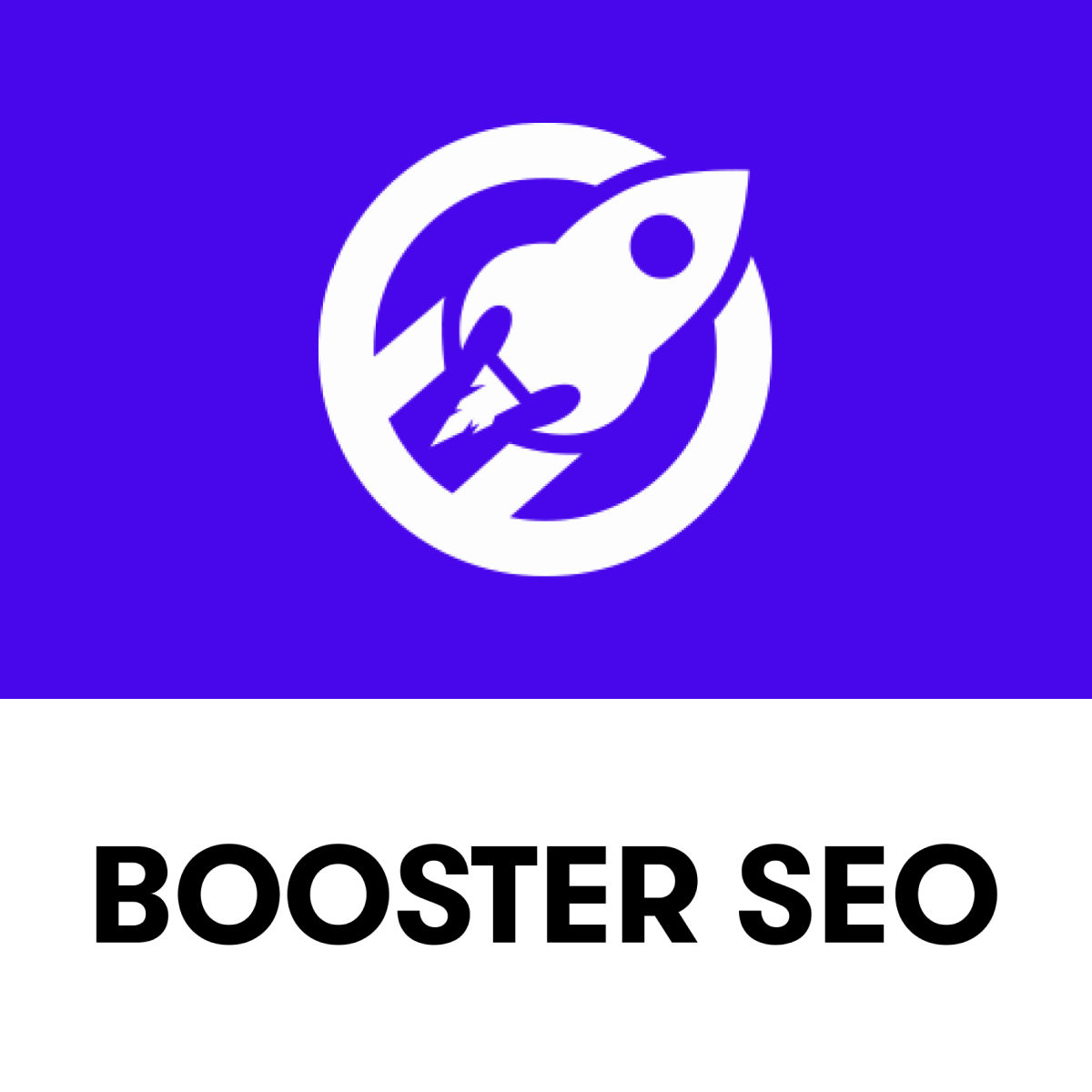- Home
- Marketing
Best Marketing Apps
What is Marketing software?
Appjunction currently boasts 24 tools within the Marketing category as of April 2025. Among these, some standout options renowned for their robust features and excellent value for money includes includes Automizely ,
SearchPie , and LAI . These software solutions offer comprehensive functionalities tailored to meet various Marketing needs, making them top choices for businesses seeking efficient and effective marketing solutions.
Marketing software in ecommerce refers to digital tools designed to streamline and enhance promotional efforts within online retail environments. These platforms encompass a range of functionalities tailored to assist businesses in reaching and engaging their target audience effectively. Key features often include email marketing automation, social media management, search engine optimization (SEO) tools, and customer relationship management (CRM) systems.
At its core, marketing software empowers ecommerce businesses to create and execute marketing campaigns with precision and efficiency. Through data analytics and tracking capabilities, these tools provide insights into customer behavior, enabling businesses to tailor their strategies for optimal results. Additionally, integration with ecommerce platforms enables seamless synchronization of product listings, inventory management, and sales data, facilitating a cohesive marketing approach.
Ultimately, marketing software in ecommerce equips businesses with the necessary tools to attract, convert, and retain customers in the highly competitive online marketplace. By leveraging these technologies, ecommerce retailers can maximize their reach, drive sales, and build lasting relationships with their customer base.
15 Listings in Marketing Available

Automizely
0
(6,195)
Automizely Messages is an all-in-one marketing platform empowering brands to drive leads, customer engagement, and sales through integrated communication strategies.

SearchPie
0
(3,675)
SEO Booster by SearchPie provides innovative SEO solutions including Speed, AMP, AI, and more, bridging the gap to SEO success for ecommerce sites.

LAI
0
(1,827)
LAI Reviews builds customer trust by collecting, showing, and amplifying product reviews from multiple platforms, enhancing social proof and brand credibility.

Judge.me
0
(26,031)
Judge.me is a comprehensive solution for collecting and displaying product reviews and star ratings on ecommerce platforms, enhancing customer trust and boosting sales through authentic user feedback.

Booster SEO
0
(6,740)
This comprehensive solution boosts your SEO efforts with an all-in-one booster and image optimizer, aiming to improve rankings, traffic, and page speed.

Tiny SEO
0
(1,945)
Smart Image Optimizer is designed to improve your site's speed and SEO through image optimization, redirects, sitemaps, and lazy loading features.

Vajro
0
(1,735)
Vajro’s user-friendly app builder helps you retain customers and boost sales while reducing advertising costs, offering a simple solution for creating mobile apps.

Recart
0
(5,477)
Recart offers efficient SMS marketing solutions, including fully-managed campaigns and personalized AI text messages, aimed at increasing sales while reducing costs.

UpPromote
0
(3,245)
Affiliate by Secomapp is a comprehensive referral and affiliate program app, trusted for revenue boosting by providing easy tools for affiliate marketing.

Tapita
0
(2,033)
This app enhances your store's SEO and web performance for better conversion and sales by optimizing schema meta data and improving search engine visibility.
Overall Rating
4.9Ratings Breakdown
5
(5600)
4
(450)
3
(71)
2
(30)
1
(85)
User Reviews
Shop For Your Charity
July 3, 2024
This app was a bit glitchy at first, but Omnisend's team was great about getting things fixed for me. So far, so good - I'm going to keep using it and see what they come up with next. My main feedback would be they really need to step up their email template game! They call themselves the marketing automation tool for omnichannel retailers, and retail is al
Summer Indigo
July 3, 2024
I am beyond furious! I painstakingly added all my contacts to this app a few years ago when I first connected it to my Shopify store. It was a ton of work! I haven't used it much since then because my business was mostly in-person, but I could still log in and poke around just recently. Imagine my shock when I tried to log in yesterday to set up a campaign,
2020shopdirect.com
July 3, 2024
Okay, so I really like this app! It's great. But, there's something that's been bugging me. It's a big deal, at least for us. It's about how you subscribe and unsubscribe people. We always use double opt-in, which you totally should, but the problem is you can't really customize the emails and landing pages. You can change the words, but that's it. No logo,
RunSociety
July 3, 2024
It's a breeze to use, but I wish the WYSIWYG editor had some cooler features and more customization options. It feels a bit limited.
unisonmen.de
July 3, 2024
Please provide me with the review text you want me to rephrase. I need the actual content of the review to help you! 😊
TopCPAPCleaner
July 3, 2024
This app was great, but it's gotten so pricey I might have to jump ship. My wallet can't keep up! Thinking about switching to something cheaper.
JacnoBijoux
June 2, 2024
Bon, j'ai essayé d'envoyer un mail test après avoir tout configuré en français. Le mail est arrivé dans les spams, et en plus, il était à moitié en anglais ! C'est vraiment dommage parce que l'appli est super facile à utiliser.
Retro Chip
June 2, 2024
It would be awesome if the app could pull in user names when sending emails. Also, can you add the ability to choose between different email addresses? I have several for my business. Thanks a bunch!
Akiba Fragrance & Wellness Studio
June 2, 2024
New to Omnisend, but gotta say, their customer support is really on point! Big shoutout to Baraath for being super helpful and quick to answer my questions about formatting and testing an email campaign.
esrajeans
June 2, 2024
Man, der Support von Omnisend geht mir so auf die Nerven! Ewig lange Wartezeiten, bis endlich mal jemand antwortet, und dann kommt da so ein Wischi-Waschi zurück, mit dem ich echt nichts anfangen kann. Bei den Preisen, die Omnisend aufruft, könnte man echt mehr erwarten. Total unzufrieden - kann ich im Moment echt nicht weiterempfehlen!
Similar Categories
More about Marketing Tools
Benefits of using Marketing Software
Marketing is the core part of a DTC brand because that's what gives you the user. There are a lot of advantages to using a marketing tool for your ecommerce brand. Here are a few:
1. Streamlined Promotional Efforts: they streamline promotional efforts, saving time and effort. These apps often come with automation features for tasks like email campaigns and social media posts, allowing businesses to reach their audience consistently without constant manual intervention.
2. Data Analytics: these apps provide valuable insights through data analytics. They track customer behavior, purchase patterns, and engagement metrics, helping businesses understand their audience better and tailor their marketing strategies accordingly. This data-driven approach improves the effectiveness of marketing campaigns and boosts return on investment (ROI).
3. Multichannel Marketing: marketing apps facilitate multichannel marketing by integrating with various platforms like social media, email, and search engines. This broadens the brand's reach and increases visibility across different online channels, maximizing exposure to potential customers.
4. Personalized Marketing: many marketing apps offer personalized marketing capabilities, allowing brands to create targeted campaigns based on customer preferences and behavior. This personalization enhances customer experience and fosters loyalty, leading to higher customer retention rates.
Typical Pricing of Marketing Apps
The cost of marketing tools for Shopify or ecommerce brands varies widely depending on factors such as the features included, the size of the business, and the specific needs of the brand.
For smaller businesses or startups, there are often affordable or even free options available, such as basic email marketing tools or social media management platforms with limited features. These might range from around $10 to $100 per month, depending on the provider and the scale of usage.
Mid-range marketing tools with more comprehensive features, including automation, analytics, and integration capabilities, typically range from $50 to $300 per month. These tools cater to growing businesses that require more advanced functionalities to manage their marketing efforts effectively.
For larger enterprises or brands with complex marketing needs, premium marketing suites or enterprise-level solutions can cost anywhere from $300 to several thousand dollars per month. These tools offer robust features, customization options, and dedicated support services to meet the demands of high-volume ecommerce operations.
Additionally, some marketing tools may charge based on usage, such as the number of contacts in an email list or the volume of ad spend managed through the platform, which can add to the overall cost.
Overall, the cost of Marketing tools would vary depending on your usage and the size of your brand. However, there are a lot of tools you may find on Appjunction that offer free trials to give you an idea of the features they offer. I'd highly suggest trying a few and selecting the ones that work for you. You can also sort them by pricing and use them according to your needs.
Marketing Software Features to look
When selecting a marketing platform as an ecommerce brand, it's crucial to consider features that align with your business goals and objectives. Here are some key features to look for:
Multichannel Integration: Ensure the platform supports integration with various marketing channels such as email, social media, search engines, and online marketplaces like Amazon and eBay. This allows you to reach your audience across multiple touchpoints.
Automation Tools: Look for automation features that streamline repetitive tasks such as email campaigns, social media posting, and ad management. Automation saves time and improves efficiency in executing marketing strategies.
Segmentation and Personalization: The ability to segment your audience based on demographics, behavior, and preferences is essential for targeted marketing campaigns. Look for platforms that offer robust segmentation capabilities and support personalized content delivery.
Analytics and Reporting: Comprehensive analytics and reporting tools provide valuable insights into campaign performance, customer behavior, and ROI. Look for platforms that offer real-time data tracking, customizable reports, and actionable insights to optimize marketing efforts.
Customer Relationship Management (CRM): Integration with CRM systems allows you to manage customer interactions and track customer lifecycle stages. This helps in building and nurturing relationships with customers for long-term loyalty and retention.
To get a better overview of the various features offered by different tools, I would highly recommend browsing the feature section of each app and comparing them with others in the same industry. This will give you a better idea of the different features offered by apps in Marketing.
Who uses Marketing Software?
Marketing software for an ecommerce brand is used by various stakeholders within the organization, each with different roles and responsibilities:
Marketing Teams: Marketing professionals utilize marketing software to plan, execute, and analyze marketing campaigns across multiple channels such as email, social media, search engines, and online advertising platforms. They leverage features like automation, segmentation, and analytics to target the right audience and optimize campaign performance.
Ecommerce Managers: Ecommerce managers oversee the online sales operations of the brand and use marketing software to drive traffic, increase conversions, and boost sales on the ecommerce platform. They rely on integration with ecommerce platforms to manage product listings, inventory, and order fulfillment efficiently.
Sales Teams: Sales teams may use marketing software to access customer data and insights to better understand customer needs and preferences. They may also utilize CRM integration to track leads, manage contacts, and facilitate the sales process effectively.
Data Analysts: Data analysts leverage marketing software to collect, analyze, and interpret data related to customer behavior, campaign performance, and market trends. They use advanced analytics and reporting tools to derive actionable insights and make data-driven decisions to optimize marketing strategies.
Business Owners/Executives: Business owners and executives rely on marketing software to monitor the overall performance of marketing initiatives, track key performance indicators (KPIs), and make strategic decisions to drive business growth. They may use dashboards and customizable reports to gain visibility into the effectiveness of marketing efforts.
Marketing software has been used by various teams across the organization. I would highly recommend you to go through reviews along with the designation of the reviewer to get a fair idea of the different teams that use these software. You can also dig deeper into each review and find out the use cases and problems they have faced.
Different kinds of Marketing Software
There are various types of marketing software tailored to the specific needs of ecommerce or direct-to-consumer (DTC) brands. Some of the most common types include:
Email Marketing Platforms: These tools enable businesses to create, send, and automate email campaigns to engage subscribers, nurture leads, and drive sales. They often include features like customizable templates, segmentation, A/B testing, and analytics.
Social Media Management Tools: Social media management platforms allow brands to schedule posts, manage multiple social media accounts, monitor mentions and engagement, and analyze performance metrics across platforms like Facebook, Instagram, Twitter, LinkedIn, and Pinterest.
Search Engine Optimization (SEO) Software: SEO tools help ecommerce brands optimize their website and product listings to improve search engine rankings and organic traffic. They offer keyword research, on-page optimization, backlink analysis, and performance tracking features.
Content Marketing Platforms: Content marketing software assists brands in creating, publishing, and promoting content to attract and engage their target audience. They may include features such as content calendars, collaboration tools, content ideation, and distribution channels.
Ad Management Platforms: Ad management tools help brands create, manage, and optimize online advertising campaigns across platforms like Google Ads, Facebook Ads, Instagram Ads, and other ad networks. They offer features such as ad creation, targeting options, budget management, and performance tracking.
I would highly recommend that you go through the subcategories within each category on Appjunction to learn more about the different types of tools offered in Marketing. Select a subcategory for which you're searching for a tool and explore its features and pricing. You can also filter the reviews based on company size and industry to see how this tool works for businesses like yours.
Potential issues with Marketing Software
While marketing apps offer numerous benefits for ecommerce or Shopify brands, there are several potential issues that businesses may encounter:
Integration Challenges: Some marketing apps may face compatibility issues or difficulties integrating with existing ecommerce platforms, leading to data synchronization issues or disruptions in workflow efficiency.
Complexity and Learning Curve: Certain marketing apps may have complex interfaces or require extensive configuration, which can pose challenges for users, especially those with limited technical expertise or time constraints.
Performance and Reliability: Marketing apps may experience downtime, slow loading times, or technical glitches, impacting the performance and reliability of marketing campaigns. Businesses should choose reputable providers with a track record of reliability and uptime.
Limited Customization: While many marketing apps offer customizable templates and settings, some may have limitations in terms of customization options, branding flexibility, or design capabilities, restricting businesses' ability to create unique and personalized marketing collateral.
Lack of Scalability: Some marketing apps may lack scalability, meaning they may not accommodate the growing needs of a rapidly expanding ecommerce business, leading to performance bottlenecks or the need for frequent migrations to more robust platforms.
Getting onboarded with a new Marketing tool is a significant decision that you, as a manager, have to make. Do check out detailed reviews and, most importantly, their pros and cons because they'll give you a fair idea of potential challenges that you may face with these tools. I would also suggest that you filter out the negative reviews along with your industry to get a better idea of the whole picture.
Integration of Marketing Software
Several tools integrate with ecommerce-focused marketing software to enhance functionality and streamline operations. Some common integrations include:
Ecommerce Platforms: Marketing software often integrates directly with popular ecommerce platforms such as Shopify, WooCommerce, Magento, and BigCommerce. These integrations enable seamless synchronization of product data, inventory management, order processing, and customer information between the marketing software and the ecommerce platform.
Email Marketing Platforms: Marketing software integrates with email marketing platforms like Mailchimp, Constant Contact, Klaviyo, and Campaign Monitor to streamline email campaign management, subscriber list synchronization, and performance tracking.
Social Media Management Tools: Integrations with social media management tools such as Hootsuite, Buffer, Sprout Social, and Socialbakers enable marketing software to schedule posts, monitor engagement, analyze performance metrics, and manage multiple social media accounts from a centralized dashboard.
Analytics and Reporting Tools: Integrating with analytics and reporting tools like Google Analytics, Adobe Analytics, and Mixpanel allows marketing software to track campaign performance, website traffic, conversion rates, and customer behavior, providing valuable insights for optimization.
Customer Support Tools: Integrations with customer support tools like Zendesk, Freshdesk, and Help Scout allow marketing software to access customer service data, track support interactions, and provide personalized assistance based on customer inquiries and feedback.
Review and Reputation Management Platforms: Integrating with review and reputation management platforms such as Trustpilot, Yotpo, and Birdeye enables marketing software to monitor online reviews, gather customer feedback, and manage brand reputation effectively.
Appjunction can help you with a detailed list of tools integrated with each tool or app. Go to the app page, and you'll be able to find out those in detail. Additionally, you may compare different tools with respect to integrations offered by tools and what's suitable for your ecommerce brand.
Trends in Marketing Software
Several trends are shaping the landscape of marketing tools in ecommerce. Some prominent trends include:
AI and Machine Learning: AI-powered tools help businesses analyze large datasets, optimize marketing campaigns, and deliver targeted content to individual customers based on their preferences and behavior.
Omnichannel Marketing: Ecommerce brands are increasingly adopting omnichannel marketing strategies to provide seamless and cohesive experiences across multiple touchpoints, including websites, mobile apps, social media, email, SMS, and physical stores. Marketing tools that facilitate omnichannel integration enable brands to engage customers at every stage of the buyer's journey and maintain consistency across channels.
Conversational Marketing: Conversational marketing tools such as chatbots, live chat, and messaging apps are gaining popularity in ecommerce for providing real-time customer support, personalized recommendations, and interactive shopping experiences. These tools enable brands to engage with customers in natural, conversational interactions and drive conversions through personalized assistance and product recommendations.
User-Generated Content (UGC) Platforms: UGC platforms enable ecommerce brands to leverage customer-generated content such as reviews, ratings, photos, and videos to build trust, social proof, and authenticity. Marketing tools that integrate with UGC platforms help brands curate and showcase user-generated content across marketing channels to influence purchasing decisions and foster community engagement.
Subscription and Membership Models: Marketing tools that facilitate subscription management, personalized recommendations, and membership perks help brands build and retain loyal subscribers while driving recurring sales and revenue growth.
Data Privacy and Compliance:Tools that offer robust data security measures, consent management features, and compliance monitoring help brands maintain trust and transparency with customers while mitigating risks associated with data breaches and non-compliance.
Frequently Asked Questions Related To Marketing
What are the current trends in marketing tools for ecommerce businesses?
Several trends are shaping the landscape, including AI and Machine Learning for data analysis and personalization, omnichannel marketing for cohesive customer experiences, conversational marketing tools like chatbots, user-generated content platforms for social proof, subscription and membership models, and a strong focus on data privacy and compliance.
Which marketing tools are most popular among ecommerce brands?
While specific app popularity can vary, commonly used tools include email marketing platforms (e.g., Mailchimp, Klaviyo), social media management tools (e.g., Hootsuite, Buffer), SEO software (e.g., SEMrush, Ahrefs), and content marketing platforms (e.g., HubSpot, WordPress).
How can I determine the best marketing software for my ecommerce business?
Consider factors such as your budget, business size, specific needs, desired features (e.g., automation, analytics, integrations), and user reviews. Platforms like Appjunction offer comparisons and insights to help you choose.
What is the typical pricing range for marketing software in the ecommerce sector?
Pricing varies widely based on features and scale. Basic tools may start around $10/month, mid-range options range from $50-$300/month, and enterprise-level solutions can cost several thousand dollars per month.
Are there free marketing tools available for ecommerce businesses?
Yes, several tools offer free plans with limited features or trials. Explore options like Mailchimp, Buffer, or HubSpot for basic email marketing, social media management, or CRM functionalities.
How does marketing software integrate with ecommerce platforms like Shopify?
Many marketing tools offer direct integrations with popular ecommerce platforms, enabling seamless synchronization of product data, inventory, orders, and customer information for streamlined operations.